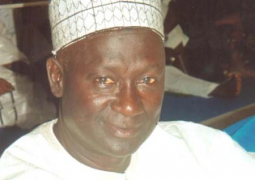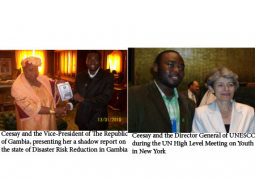The grant is to help the NCAC obtain the necessary equipment for preservation, and provide training in how to digitize these important recordings.
The recordings were made between 1960s - 1980s and cover topics including the empire of Kaabu (a powerful federated Kingdom that includes present day The Gambia, Casamance and Guinea Bissau from the late 13th to mid-19th centuries) in addition to the relationships between the various ethnic groups dating back to the 18th and 19th centuries.
The recordings are one of the most extensive in the West African region, and have added importance given that the oral history archive of Guinea Bissau was lost during their 1998 civil war.
The recordings are on reel-to-reel tapes and cassette tapes with the equipment to play the recordings becoming increasingly difficult and expensive to obtain.
The grant of over £16,000 will help the NCAC staff receive training in digitization techniques, the creation of catalogues, storage and archiving and the accessing of the data produced.
The digitization project will take approximately three years to complete.
The British Library grant has been complimented with a grant from ‘Music Development and Heritage Sweden’.
Acting UK ambassador George Sherriff said: ‘I congratulate the NCAC on receiving this grant, and I’m pleased to hear that these important oral archives of the West African region will be preserved for generations to come’.
NCAC director-general Baba Ceesay said: “The gesture is most welcome and stands to not only preserve this invaluable collection, but will also strengthen the NCAC’s nomination of the collection for inscription in the UNESCO Memory of the World Register, a programme designed to increase awareness of the existence and significance of important documentary heritage worldwide.
This is prestigious recognition for documentary heritage with outstanding universal value”.
Source: British Embassy news release



